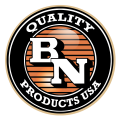When you’re getting ready to start a concrete or cement construction project, the term rebar may have been tossed around when you were trying to plan and buy materials. But what is rebar? Exactly what does it do for your project that makes it so important? Are the different types really vital to your project? Here’s a quick look at the basics of rebar to help you get started.
What is Rebar?
What is rebar exactly?
Rebar is a steel bar that is used in concrete construction. By adding these reinforcing steel bars, you’re creating reinforced concrete. Whether your project includes floor slabs, walls or posts, rebar helps keep cracks that form from making the project fall apart. Though all concrete cracks, rebar, and reinforcing materials help control where and the extent of the cracks. It also provides structural strength to the project.
Why is rebar important in my project?
Rebar makes concrete several times more resistant to failure. It provides tensile strength using a reinforcing bar that is resistant to corrosion. If you want to make your concrete structural, rebar provides much stronger support than steel wires, reinforcing fiberglass and many other products on the market. Why? Because it provides structural strength in its own right.
Different types of rebar
There is a wide range of rebar types on the market:
- Carbon steel rebar is the backbone of concrete work. It’s used in the majority of concrete pours. Why? It has a lower cost and provides solid strength.
- Glass fiber reinforced polymer GFRP is an alternative to traditional steel rebar. Using fiberglass, the rebar is created in sticks to provide reinforcement. It’s stronger in terms of tensile strength.
- Galvanized rebars are used in situations where corrosion can be a problem. The rebar is coated with zinc using several different processes. These can include cold plating, hot plating or electroplating. The zinc provides a protective barrier over the steel.
- Stainless steel rebars are used in corrosive environments where zinc can’t be used due to its galvanizing effects. It tends to be more expensive than galvanized rebar. For this reason, it’s only used when absolutely necessary.
- Epoxy coated rebar is a modern, economical option for corrosive environments. The rebar is coated in epoxy to protect it from corrosion. However, it may not be the best bet in environments where shifting subgrade, cracks or mechanical motion may damage the protective coating, allowing corrosive materials access to the steel.
- European rebars are simply measured in different formats than what we see on American markets. They still provide solid reinforcement of your structural concrete.
Different bar sizes and grades of steel are available to provide different levels of strength. This allows you to choose the right solution for your project with relative ease.
What is rebar? As you can see, it’s a very important part of concrete construction. The real question is, once you’ve got the rebar you need, do you have the right tools to work with it? At BN Products, we have a range of options available to make your job easier. Why not take a look at what we have to offer?


